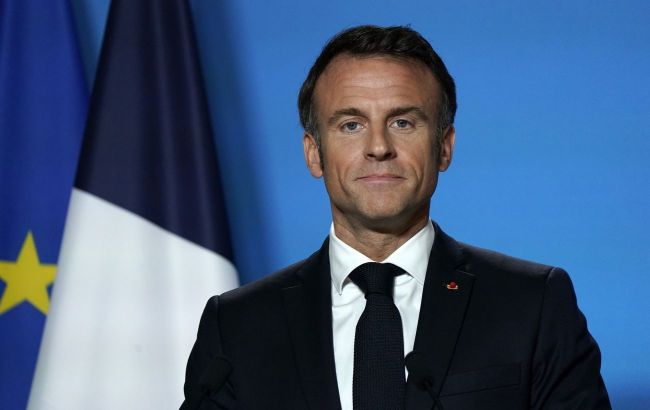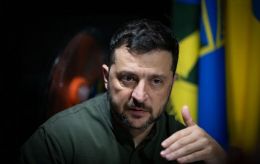Macron wants to become dominant leader in Europe - The Telegraph
 French President Emmanuel Macron (photo: Getty Images)
French President Emmanuel Macron (photo: Getty Images)
The French president wants to be seen as the dominant power in Europe amid a changing political landscape at the international and domestic levels.
According to The Telegraph, Macron is engaged in a power struggle with the more cautious German Chancellor Olaf Scholz, who is throwing a spanner in the Franco-German "engine" of European politics.
The French president's comments about the possibility of sending European troops to Ukraine at the hastily convened Paris summit in February were a surprising turnaround for a president who once warned against humiliating Moscow and insisted on keeping diplomatic channels open with Russian dictator Vladimir Putin.
To understand the reasons for this unexpected turn, The Telegraph spoke to numerous sources in the Elysee Palace and the Bundestag.
The newspaper notes that Germany has repeatedly made it clear that it does not consider France, the EU's main military power, to be a threat.
When Scholz gave a speech in February calling on European allies to step up their "insufficient" efforts to supply Ukraine with important weapons, it stirred up the French.
Macron then responded by recalling Germany's initial ludicrous offer of helmets to Kyiv two years ago, when the war in Ukraine began. He also emphasized France's donation of Scalp long-range missiles and urged Scholz to follow suit with Taurus missiles, considered one of the Bundeswehr's most advanced weapons systems.
Macron's idea of sending foreign troops to Ukraine
At the end of February, French President Emmanuel Macron did not rule out the possibility that NATO might send troops to help Ukraine. However, there was no consensus at the time.
Later, Macron clarified that French troops could be sent to Ukraine if Russian troops attacked Kyiv or Odesa again.
A number of NATO countries opposed this idea, including Germany, the Czech Republic, Bulgaria, Poland, Spain, and Italy. At the same time, some countries are ready to consider such a possibility, including Lithuania, Latvia, and Estonia.
Estonian Prime Minister Kaja Kallas supported Macron's idea and said that the readiness to send troops to Ukraine is a signal to Russian dictator Vladimir Putin.

